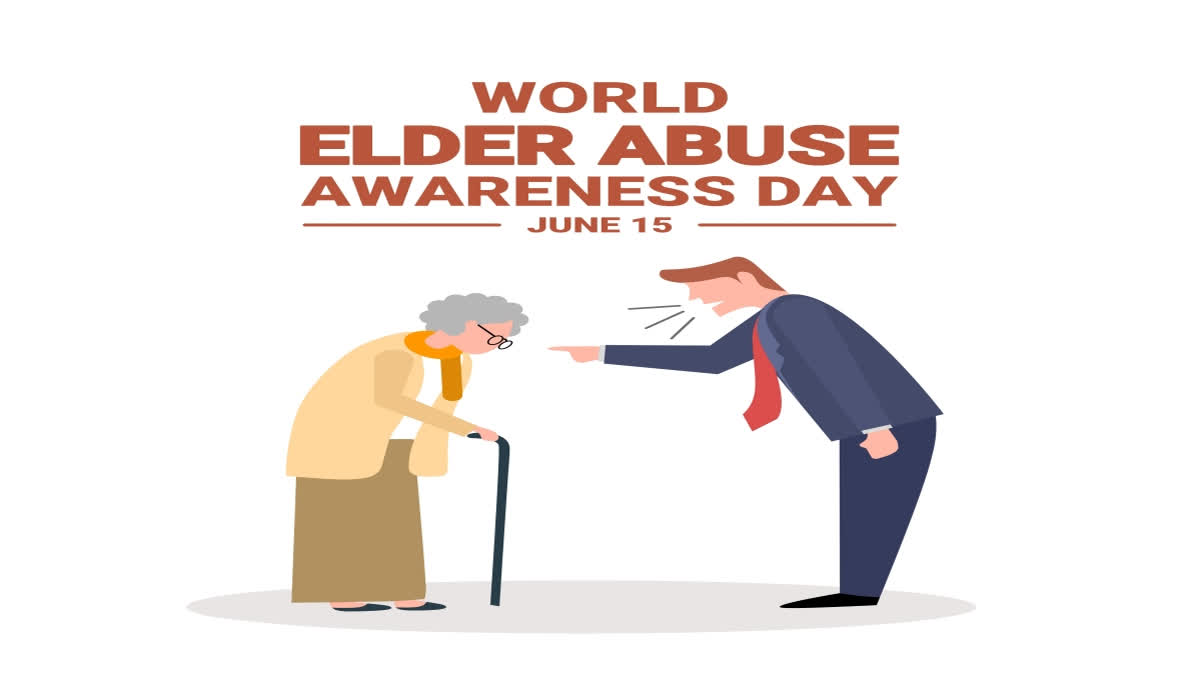New Delhi: With a call to raise awareness about abuse, neglect, and exploitation of elders, and reaffirm the commitment to the principle of justice for all, World Elder Abuse Awareness Day is celebrated on June 15.
The World Elder Abuse Awareness Day (WEAAD) was initiated on June 15, 2006, by the International Network for the Prevention of Elder Abuse (INPEA). The United Nations (UN) later adopted a resolution on December 19, 2011, recognising the significance of this day.
World Elder Abuse Awareness Day is also a time to call for action to prevent and encourage those affected to report this serious problem.
Theme & Significance of World Elder Abuse Awareness Day
This year’s World Elder Abuse Awareness Day (WEAAD) highlights "Spotlight on Older Persons in Emergencies," emphasising the urgent need to protect and support older individuals during crises.
The day calls on governments, international donors, organisations, and communities to prioritise the safety and well-being of older persons in their emergency preparedness and response strategies. It encourages the development of inclusive policies that ensure older persons are not overlooked during crises.
Emergencies such as natural disasters, pandemics, or conflicts disproportionately affect older persons, exacerbating their existing vulnerabilities. The UN resolution emphasises addressing their needs in emergency planning and response is crucial, as older individuals often face mobility issues, chronic health conditions, or social isolation.
"These factors can hinder their ability to access aid, evacuate safely, or receive timely medical care and support services. Additionally, the stress and chaos of emergencies can increase the risk of elder abuse, including physical, emotional, financial, or neglect," the UN resolution said.
The WEAAD also highlights the importance of education and training for emergency responders, caregivers, and the public. By raising awareness about the specific challenges faced by older persons in emergencies, a more inclusive and protective environment can be raised.
Seriousness of Elder Abuse
Elder Abuse can have a devastating impact on victims, leading to physical and emotional harm, financial loss, and even death. Elder abuse is a problem that exists in both developing and developed countries yet is typically underreported globally. Prevalence rates or estimates exist only in selected developed countries ranging from one per cent to 10 per cent. Although the extent of elder mistreatment is unknown, its social and moral significance is obvious.
The Data
Between 2019 and 2030, the number of persons aged 60 years or over is projected to grow by 38 per cent, from one billion to 1.4 billion, globally outnumbering youth, and this increase will be the greatest and the most rapid in the developing world, and recognising that greater attention needs to be paid to the specific challenges affecting older persons, including in the field of human rights.
The Concern
In some traditional societies, older widows are subjected to forced marriages while in others, isolated older women are accused of witchcraft. From a health and social perspective, unless both primary health care and social service sectors are well equipped to identify and deal with the problem, elder abuse will continue to be underdiagnosed and overlooked.
India Perspective
As per an estimate, there are a projected 138 million elderly in India at present. According to HelpAge India, a not-for-profit organisation, a majority of elders in India are not prepared for their later years and have a high dependency on others for a dignified living. The organisation also released a study report on the eve of the World Elder Abuse Awareness Day which highlights 'unpreparedness and inadequacy' among elderly in India in terms of access and awareness to avail basic services across multiple spheres to live a dignified life.
The study was conducted across 20 Tier I and Tier II cities in 10 states, and surveyed 5,169 elders and 1,333 caregivers' primary family members. The survey was conducted among SEC B and C (socio-economic classes) categories. To mark World Elder Abuse Awareness Day 2024, HelpAge India is also running a campaign titled '#PoochhaHaiKabhi - #HaveYouEverAsked?'



